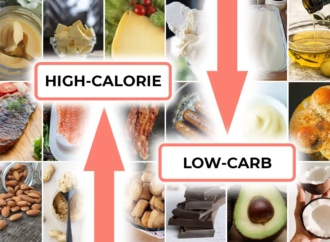In today’s fast-paced world, the issue of food adulteration has become increasingly prevalent, posing serious risks to public health. From contaminated spices to diluted milk, the consequences of consuming adulterated food can be severe and far-reaching. We’ll delve into the risks and consequences of food adulteration, and explore ways to mitigate its impact on our health.
Understanding Food Adulteration:
Food adulteration involves the addition of inferior, harmful, or unnecessary substances to food products, to increase quantity or enhance appearance. Common examples include the mixing of cheaper substances with spices, oils, and dairy products, as well as the use of chemical additives to mask spoilage.
Risks to Health:
Consuming adulterated food exposes individuals to various health risks. The presence of harmful chemicals and contaminants can lead to acute poisoning, allergic reactions, and long-term health issues. Moreover, adulterants like artificial colours and flavours can exacerbate existing health conditions and trigger allergic responses in sensitive individuals.
Consequences for Vulnerable Groups:
Demographic groups, such as children, pregnant women, and the elderly, are particularly vulnerable to the adverse effects of food adulteration. Children, whose immune systems are still developing, may experience stunted growth and developmental delays due to exposure to toxic substances. Similarly, pregnant women are at risk of complications such as miscarriage and birth defects when they consume adulterated foods.
Economic and Social Implications:
In addition to its direct impact on health, food adulteration can have significant economic and social repercussions. Consumers may incur medical expenses related to treating illnesses caused by adulterated food. While businesses may suffer reputational damage and financial losses due to recalls and lawsuits. Moreover, the prevalence of food fraud undermines trust in the food supply chain and erodes consumer confidence in the safety and integrity of food products.
Mitigating the Risks:
To address the issue of food adulteration and safeguard public health, concerted efforts are needed at multiple levels. Government agencies play a crucial role in enforcing food safety regulations, conducting inspections, and imposing penalties on offenders. Additionally, consumers can protect themselves by purchasing food from reputable sources, reading labels carefully, and being aware of common adulterants and their effects.
Conclusion:
In conclusion, the impact of food adulteration on health is profound and multifaceted, with far-reaching consequences for individuals, communities, and societies at large. By raising awareness about the risks associated with adulterated food and advocating for stricter regulations and enforcement measures, we can work towards ensuring a safer and healthier food supply for everyone.
 Food Manifest
Food Manifest 



















Leave a Comment
Your email address will not be published. Required fields are marked with *